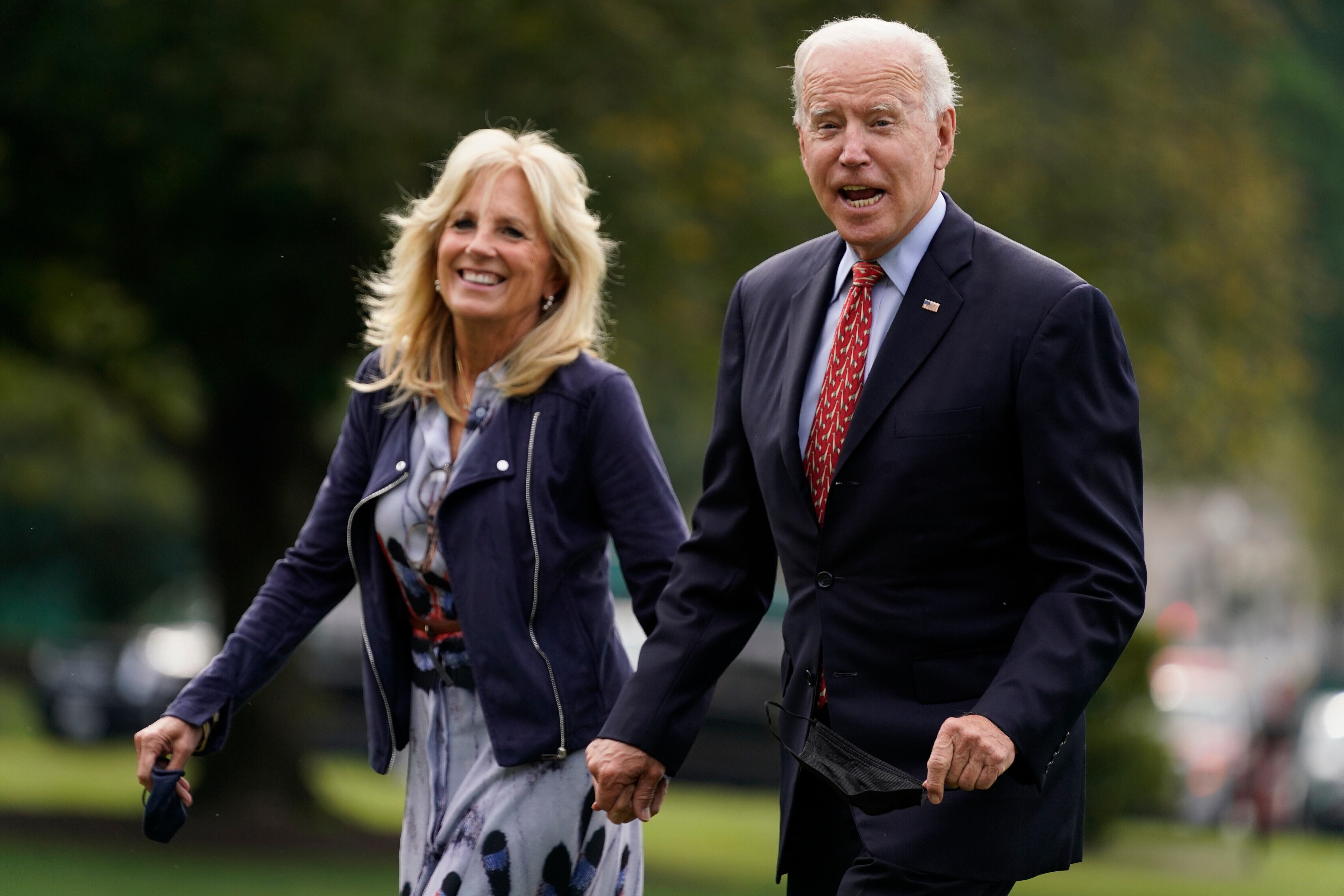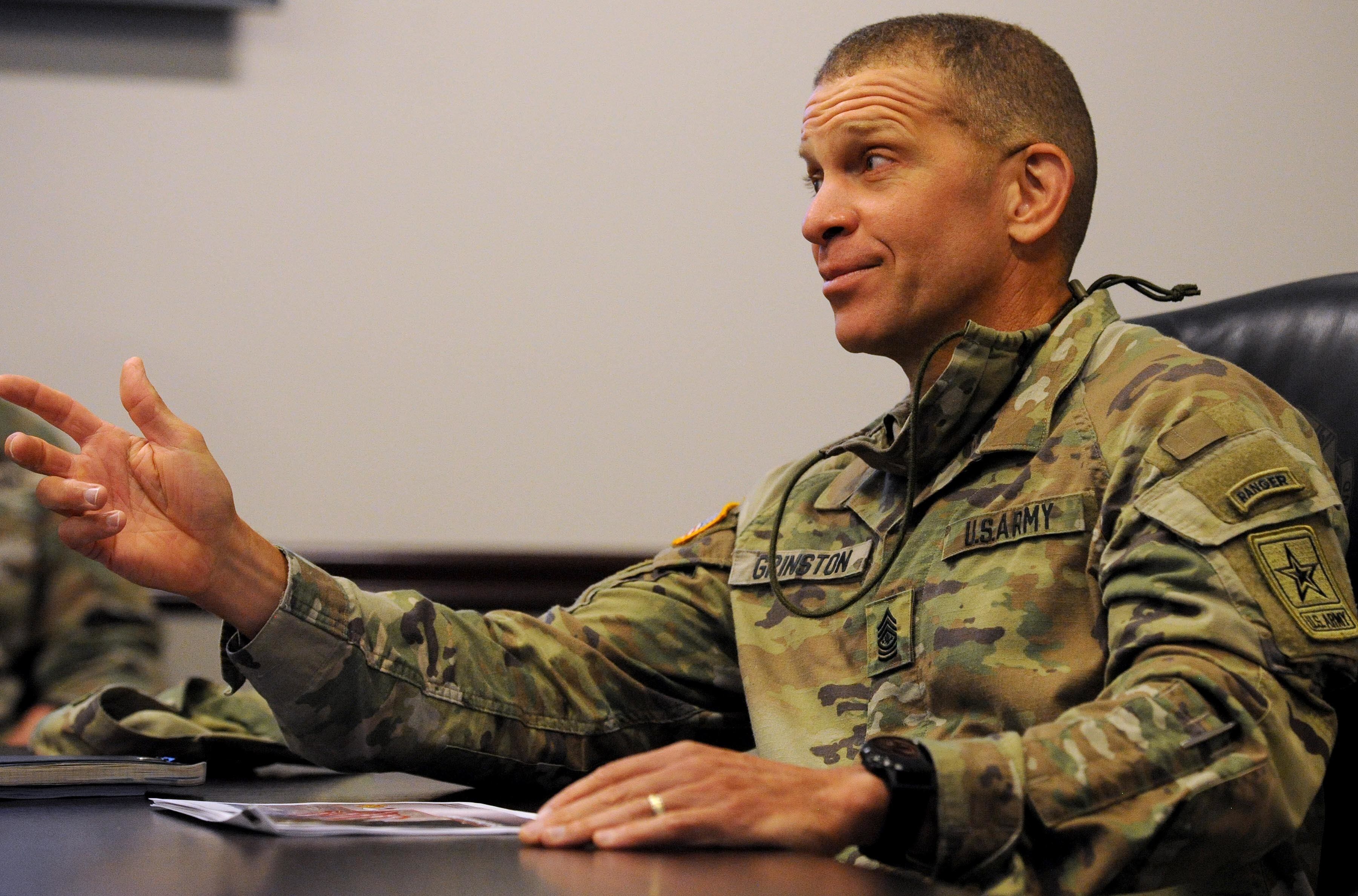First lady Jill Biden reiterated the administration’s support for the creation of a special allowance for low-income military families “to confront food insecurity and promote well-being in our military community,” in remarks during a virtual military family “summit” Thursday.
The subsidy, included in the House version of the defense policy bill, would create a “basic needs allowance” to supplement troops with a household income of less than 130 percent of the federal poverty line, which takes into account family size.
The Senate is considering a similar provision.
According to a Biden administration statement on the House proposal, White House officials support the basic needs allowance, but want a more comprehensive analysis of data so they can appropriately target families that need the assistance. Still to be determined is whether to include the Basic Allowance for Housing in those calculations.
Other White House priorities include making sure the federal government is the employer of choice for military spouses and that military families can get quality child care, Jill Biden said.
Food insecurity was one of 10 issues addressed during the day-long military family summit organized by Rep. Sanford Bishop, D-Ga., and Rep. Cathy McMorris Rodgers, R-Wash., co-chairs of the Congressional Military Family Caucus.
It was heartening to hear the first lady’s support of the Basic Needs Allowance provision, said Josh Protas, vice president of public policy at MAZON: A Jewish Response to Hunger. The charitable organization, which helped come up with the idea of the allowance, has for several years been advocating for additional money for low-income military families.

“For far too long there’s been denial there was a problem of hunger among military families,” he said. “We know there are food pantries on or near every military base that quietly serve military families that struggle to put food on the table.”
Thousands of military families routinely rely on food pantries, he said. While hunger among military families has increased during the pandemic, it was a problem even before COVID-19, Protas said.
RELATED

To those who contend that more data is needed to show there’s really an issue, Protas said, “the proof is there if you look at the lines of hundreds of military families at every installation that are waiting for a monthly food box. We just need to open our eyes and see these lines.
“We don’t need more data to prove there’s an issue,” Protas said. “Hungry military families can’t eat another report. They can’t eat another survey. They can’t eat another government study.”
The Congressional Budget Office estimates that about 3,000 service members would receive an average benefit of $400 each month with the Basic Needs Allowance, and the new allowance would cost the government $50 million from 2022 through 2026.
Advocates say too many military families are excluded from federal programs such as the Supplemental Nutrition Assistance Program, or SNAP, because the housing allowance bumps them over the income eligibility limit.
In the House version of the defense bill, the Basic Allowance for Housing would be excluded from the household income calculation for the Basic Needs Allowance. It would not in the Senate version.
Bianca Strzalkowski, the wife of a retired Marine, said too many military families suffer in silence from hunger, and her family is an example. She described her experience of getting food from food banks, and her family having to eat MREs while she was pregnant with her second child.
At their first duty station at New River Marine Corps Air Station, N.C., she said, they established a strong foundation, with a life based on two incomes. But that fell apart when they moved to Arizona and she wasn’t able to find employment.
“The bills we built on two incomes quickly led us to debt,” she said. “Debt led us to be unable to do certain things, like pay bills on time, and spiraled to almost having a car repossessed. We got to a place where we couldn’t afford groceries for daily needs.”
Instead, they relied on food banks and MREs. They got help from family, and from Navy-Marine Corps Relief Society, she said, but their financial situation didn’t improve until they moved to their next duty station and she was able to find employment. Even so, she said, they dealt with debt problems for about half of her husband’s career.
They didn’t feel financially stable until her husband retired in 2018, Strzalkowski said.
They no longer worry about having food in the refrigerator, she said, “but I know there are others experiencing that stress and shame today, and they’re probably not talking about it.”
She didn’t talk about it until her husband retired. Too many families perceive a stigma is attached to talking about hunger and seeking help, she said. “While on active duty, there’s a fear that by exposing any internal household challenge, our service member’s career will be negatively impacted,” she said.
The panelists were asked about comments made by Sgt. Maj. of the Army Michael Grinston during a senior leader town hall Tuesday at the annual Association of the U.S. Army conference.
In response to a question about food insecurity, Grinston said different aspects of the problem need to be explored. “Do we pay service members enough to support their families? If we are, what are we doing with our money?” he said. “Did you get a really nice car, really nice boat, a motorcycle, and can’t feed [the] family?
“I’m not saying that’s what’s going on, absolutely not, but we have to manage the money that we have,” he said. He said financial readiness classes being offered now at all levels of the Army, as well as continuing efforts to evaluate military pay, are among the initiatives that can help.

“I don’t want any family in the Army to go hungry. We will get you food,” Grinston said, referring to programs such as Army Emergency Relief. “We have to know you need help. We’re not going to stand by and let our families go hungry.”
But panelists at the congressional caucus meeting said they are frustrated when they hear statements about food insecurity being tied to financial mismanagement.
“Our experience was not the result of trying to live a luxurious lifestyle in Yuma,” said Strzalkowski, who said she took “personal offense” with the concept. “We were trying to meet the most basic needs. …
“There’s a misconception that food insecurity is tied to money mismanagement,” she said. Food insecurity is more often tied to other factors, such as spouse unemployment and child care costs, she added.
Shannon Razsadin, executive director of the Military Family Advisory Network, said “it’s been an uphill battle in some cases to educate leaders on food insecurity.” Now it’s getting the right attention, she said, citing new efforts by Patricia Barron, deputy assistant secretary of defense for military community and family policy, members of Congress and the White House.
According to a recent report of the White House Joining Forces Interagency Policy Committee, defense officials and those from other federal agencies have formed an interagency working group to better understand the scope of food insecurity and access to nutrition benefits among military and veteran families, and ways to address the needs. Those agencies include the departments of Agriculture, Health and Human Services, Homeland Security, Veterans Affairs and the Centers for Disease Control and Prevention.
Food insecurity is a complex issue, Razsadin said, and MFAN is conducting extensive research on the underlying issues for military families, and what’s happening in their lives that causes food insecurity. They’re also working to attack the stigma that causes some families to not seek the help they need.
The nonprofit is also taking action to directly help families, such as large-scale food distribution events. Volunteers have distributed 625,000 meals since April, she said. Families get more than 75 pounds of healthy food.
For those who doubt the need, Razsadin said, “I would say come and volunteer at a food distribution event and see if you leave with a different perspective.”
But it’s ultimately the government’s responsibility to ensure military families are cared for, many say. “While food banks and food pantries have stepped up efforts to fill the need, we can’t continue to depend on charitable organizations to fulfill what is fundamentally the responsibility of the federal government,” said Rep. Bishop.
Karen has covered military families, quality of life and consumer issues for Military Times for more than 30 years, and is co-author of a chapter on media coverage of military families in the book "A Battle Plan for Supporting Military Families." She previously worked for newspapers in Guam, Norfolk, Jacksonville, Fla., and Athens, Ga.




